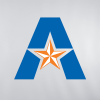
by Library News

On the surface, the four phone directories in the Special Collections archive might not seem historically significant, but first impressions can be misleading.
Studying the history contained within the Lambda Pages directories reveals a vital piece of North Texas LBGTQ+ history.
Kathryn Slover, Special Collections digital archivist, stated that these phone books, directories, and guides opened a window into the lives of what the LBGTQ+ community faced.
"These directories give a lot of insight into the LGBTQ+ community at this time period," Slover said. "When you look at these, you might think this is just a phone book or a directory. But when you think about what the gay community was facing, especially at the height of the AIDS epidemic, it's historically significant."

The UTA Libraries Special Collections Department has four copies of the Lambda Pages phone directories. These directories were published between 1993 and 2001.
Kathryn stated that these directories helped those within the LGBTQ+ community connect with people and businesses that had services they were looking for at a time when some were hesitant or resistant. Some of these services ranged from lawyers and carpet care to real estate agents.
"When we had the AIDS Memorial Quilt panel this last Fall, one of the panelists said that she had asked her dentist about seeing one of her students," Kathryn said. "He was having trouble finding a dentist that would treat him because people were afraid of AIDS and discriminated against the gay community because of that."
The New York Public Library Online Exhibition Archive website states in a 1970’s documet from the Gay Activists Alliance that the lowercase Greek letter lambda was the logo of the Gay Activists Alliance, which formed in 1969. It was chosen as the logo because "the lambda symbolizes a complete exchange of energy – that moment or span of time witness to absolute activity."
The lambda became a symbol for gay liberation and many organizations derived their names from the symbol, like the Lambda Legal Defense and Education Fund, which is a civil rights organization focused on the LGBTQ+ community.

The Lambda Pages directories helped those within the LGBTQ+ community connect with people and businesses that had services they were looking for at a time when some were hesitant or resistant.
The Lambda Pages in the Special Collections archive were published between 1993 and 2001.
The book's pages show that early on, it was distributed through different gay bars around the DFW metroplex, community centers, resource centers, and organizations like the Tarrant County Lesbian Gay Alliance. Later, the directories were distributed more widely at businesses like Kroger and Blockbuster Video stores, as well as UTA.
"These are local guides, but other similar guides were published nationally. So, if you were traveling, you would be able to find places," Kathryn said. "It was similar in some ways to the Greenbook (which helped African Americans while traveling before and during the Civil Rights era).”
The Special Collections archive has many items, like the Lambda Pages, each with a unique history. While the Lambda Pages seemingly have one use on the surface, within its pages live the story of the LBGTQ+ community in a pre-internet world.

This is a copy of one of the four copies of the Lambda Pages that is in the UTA Libraries Special Collections archive.
Add new comment